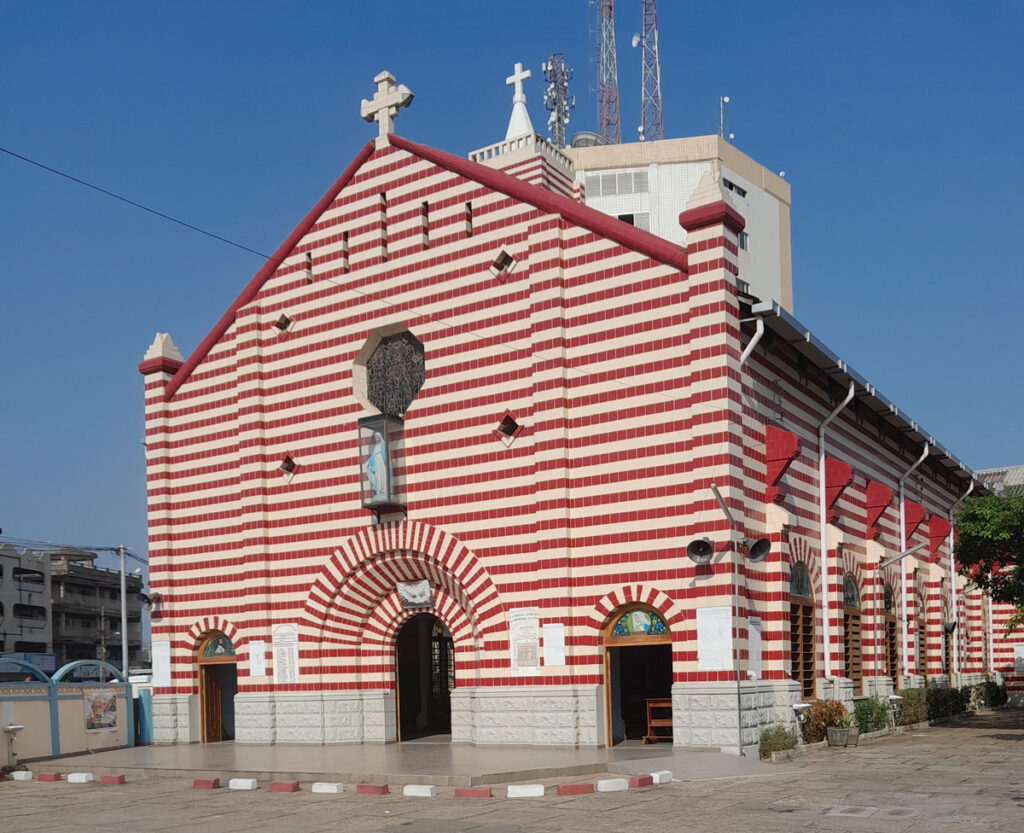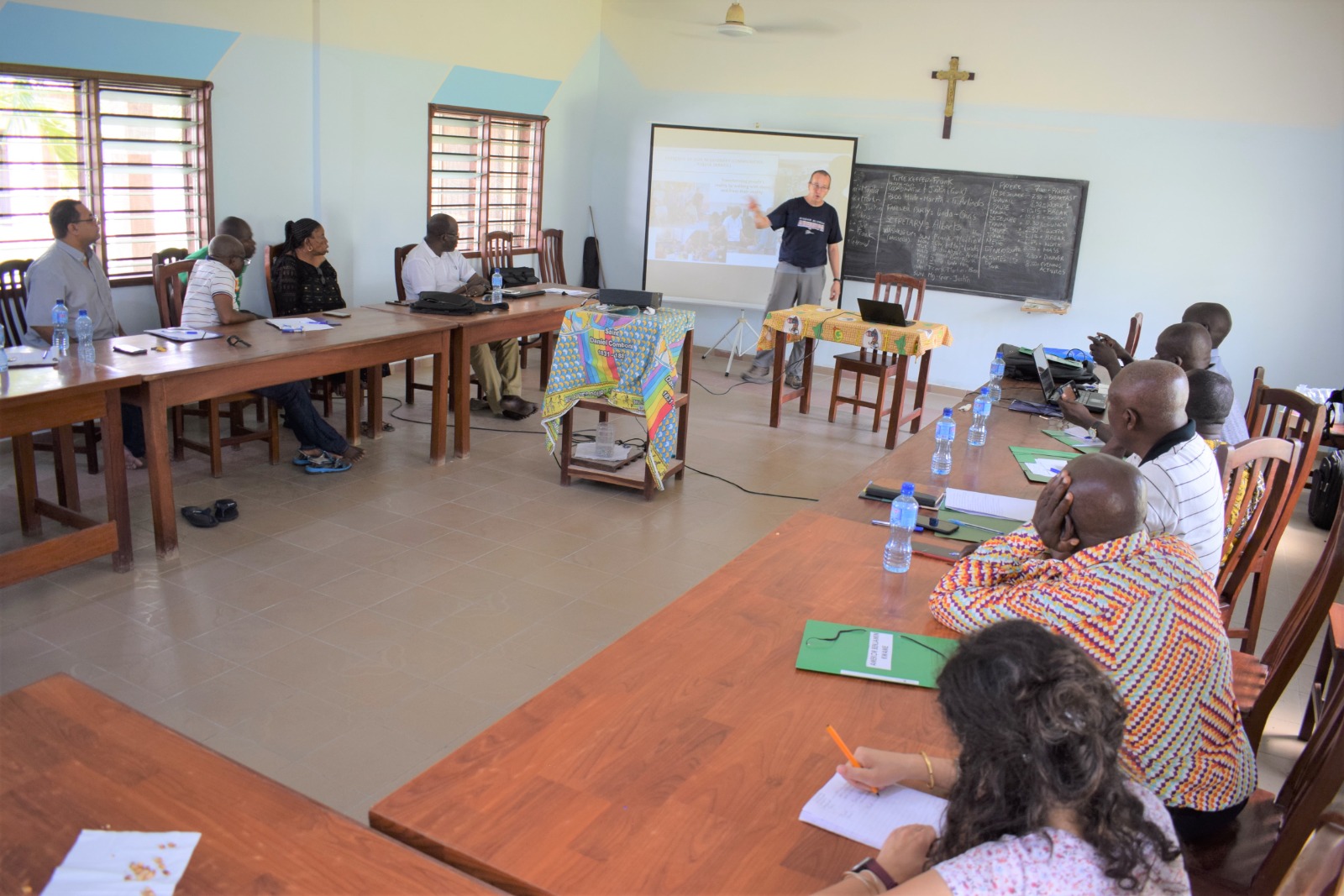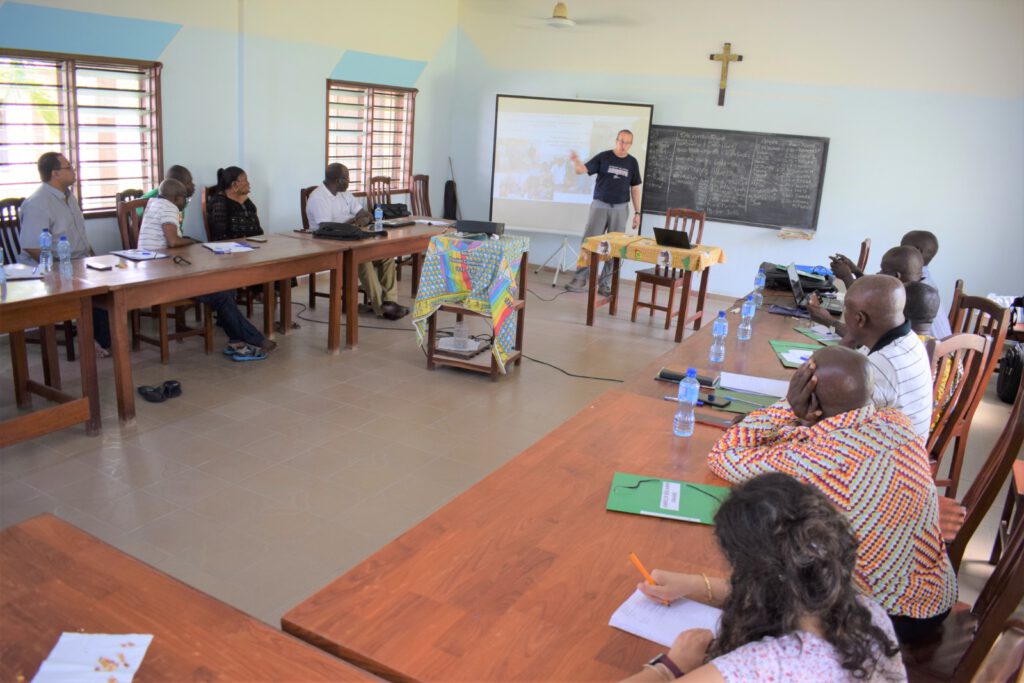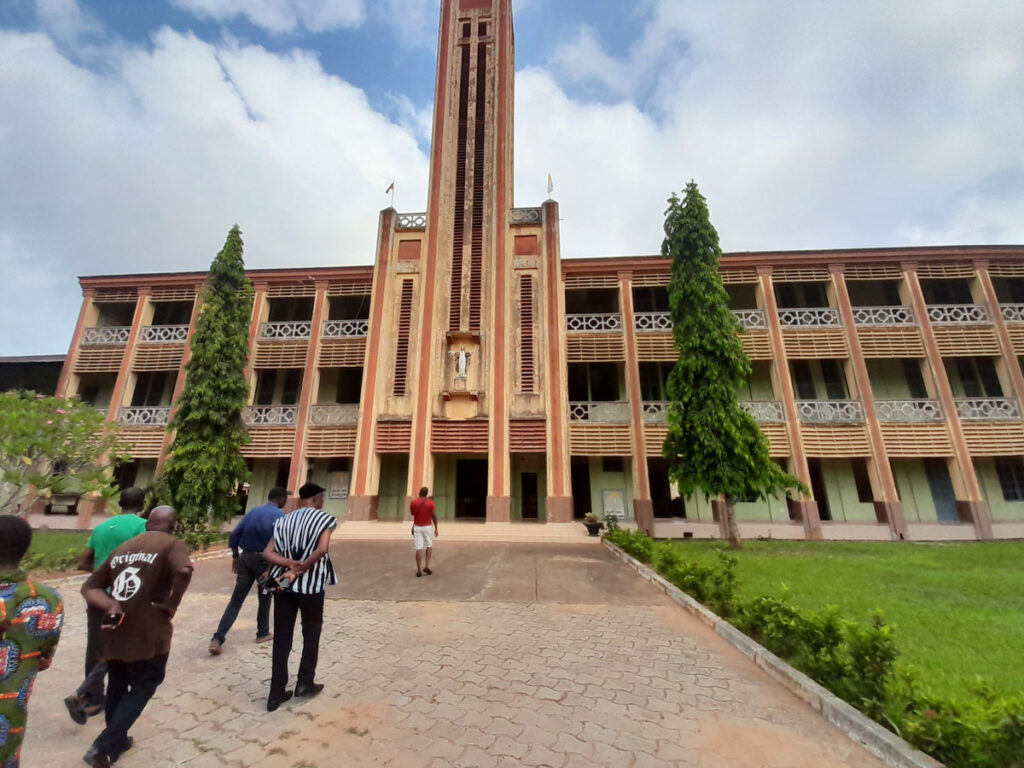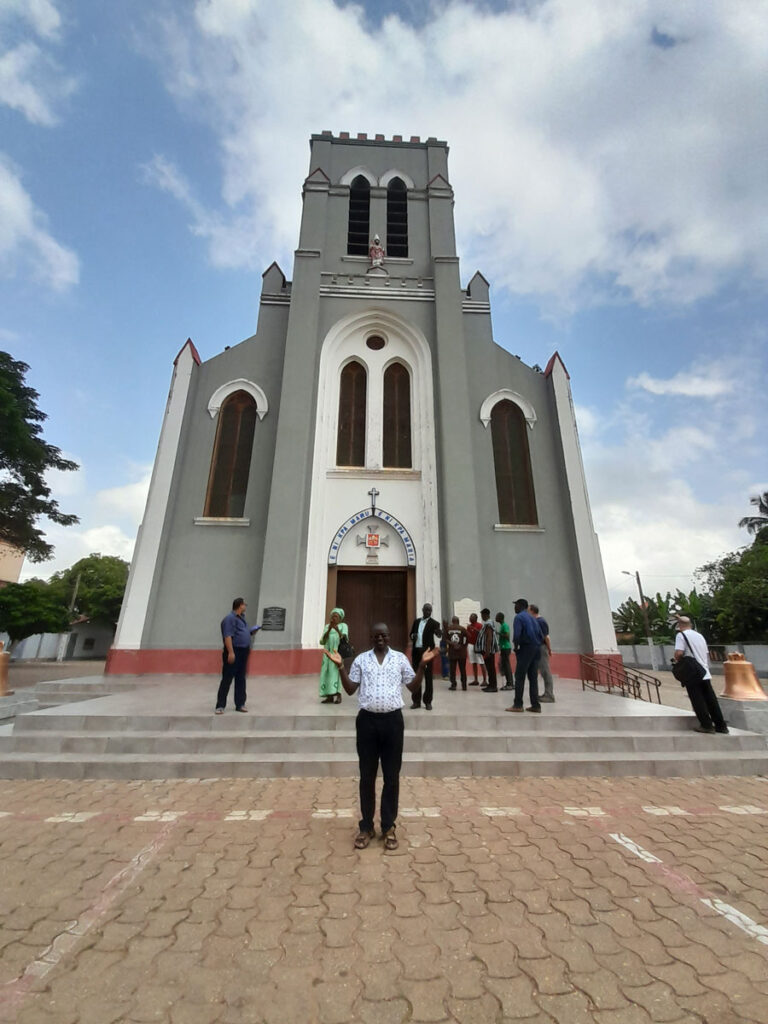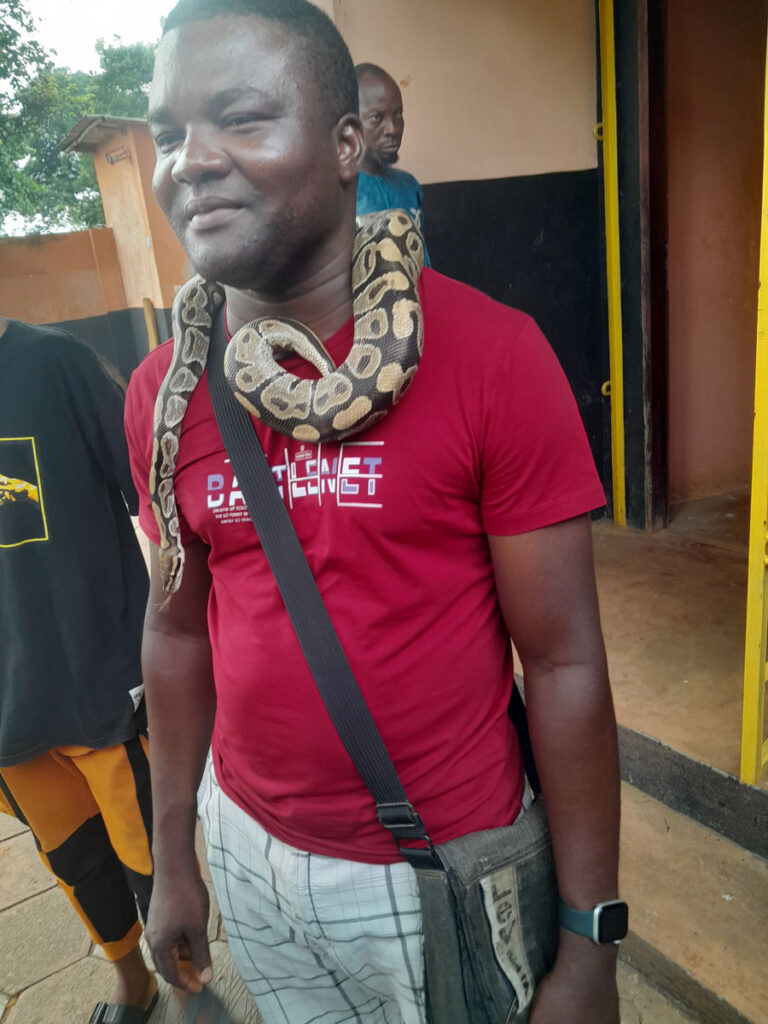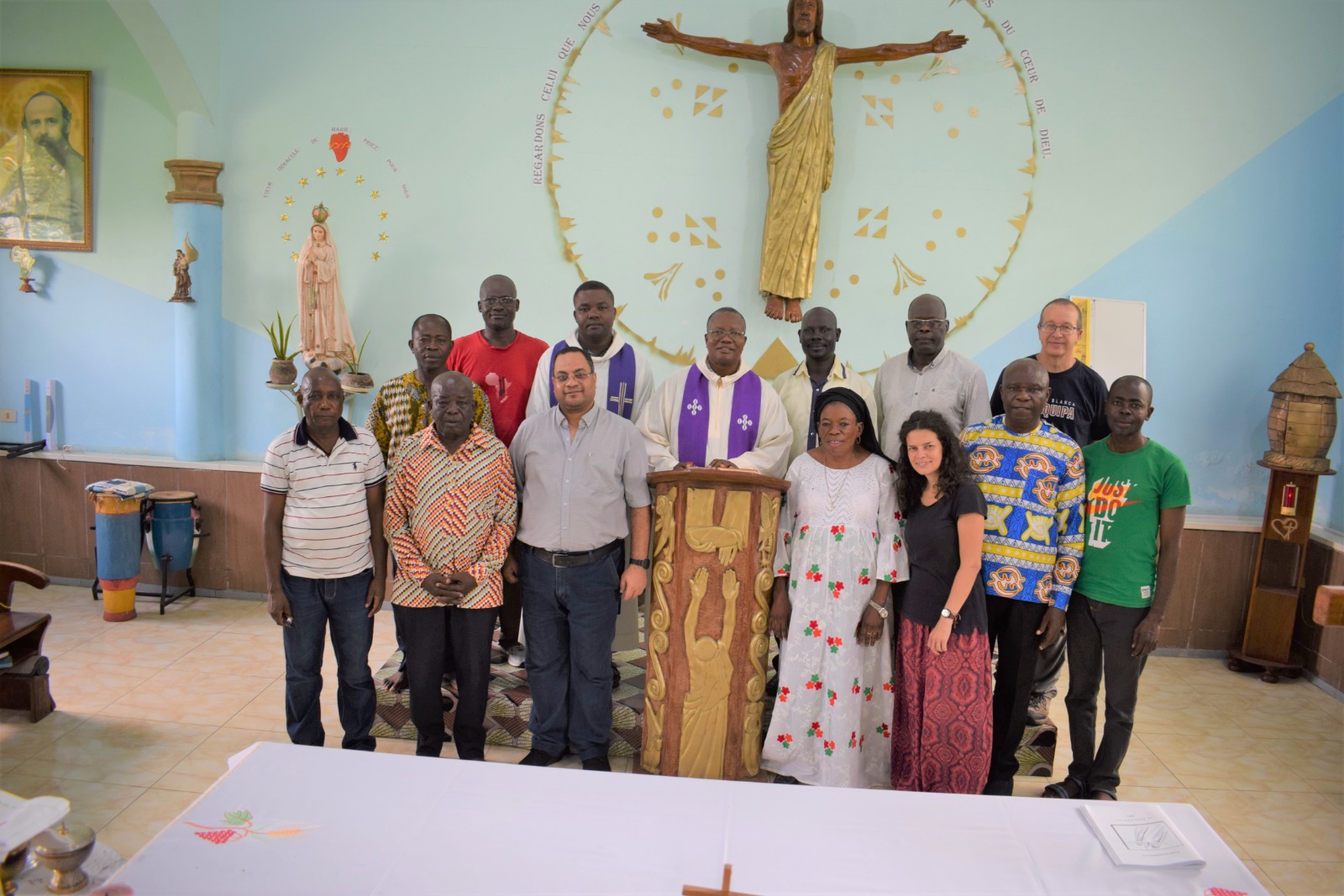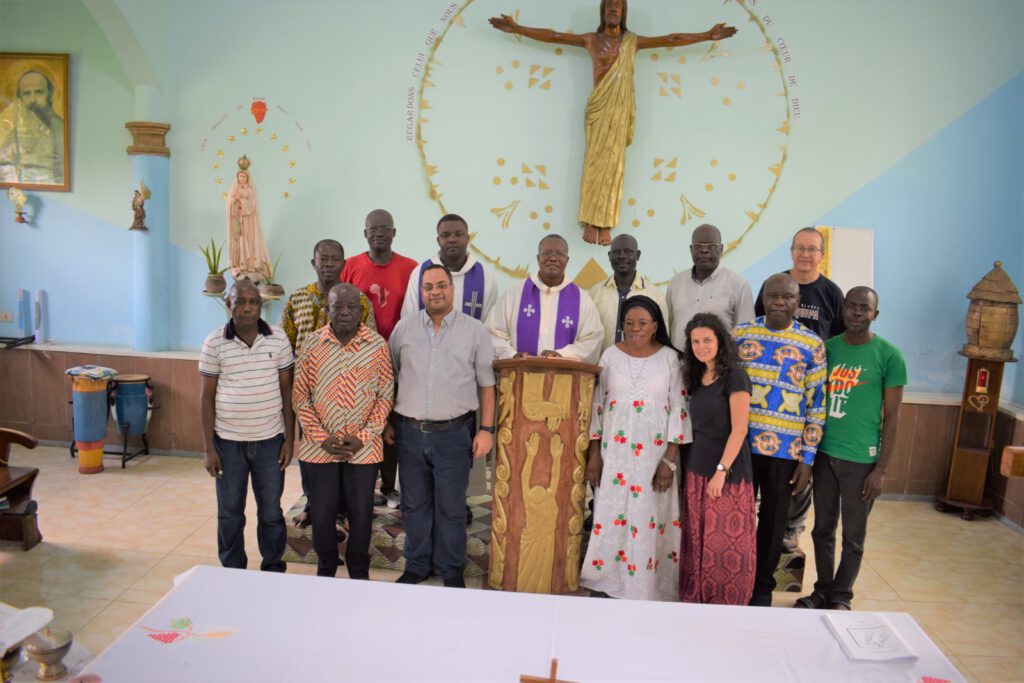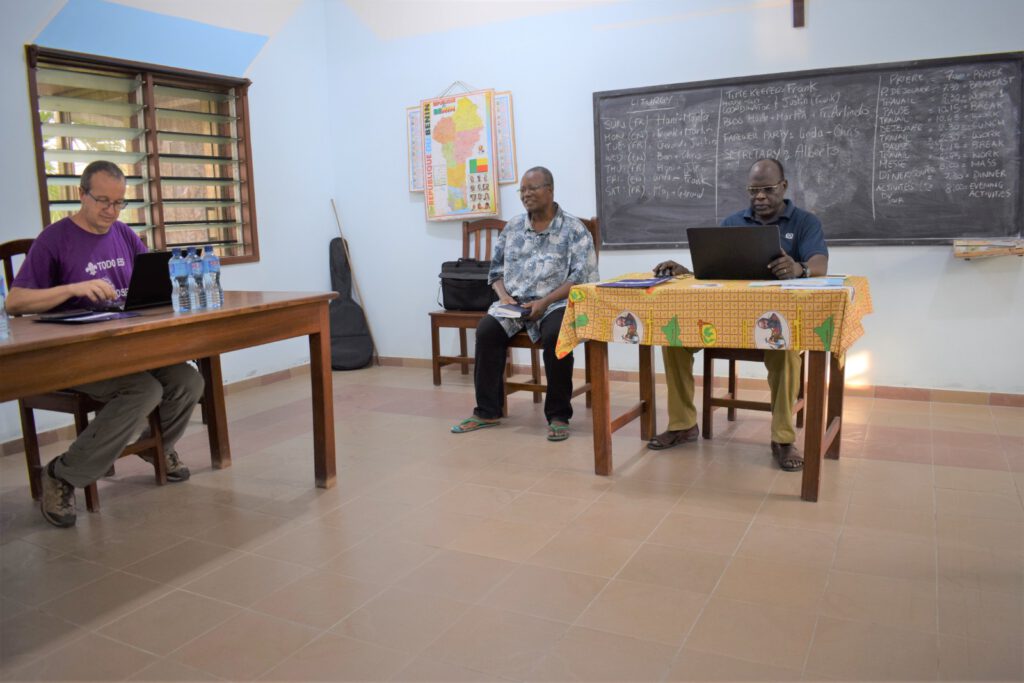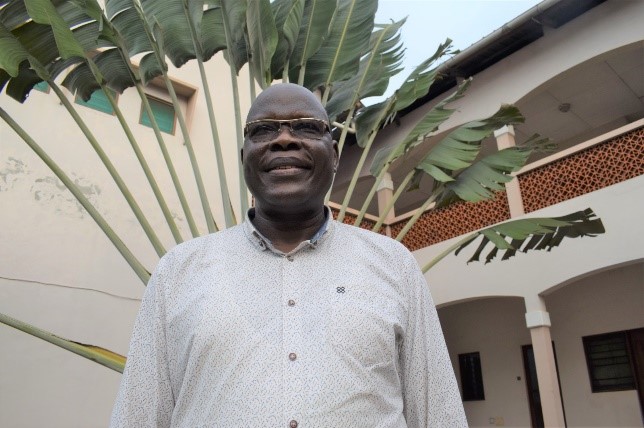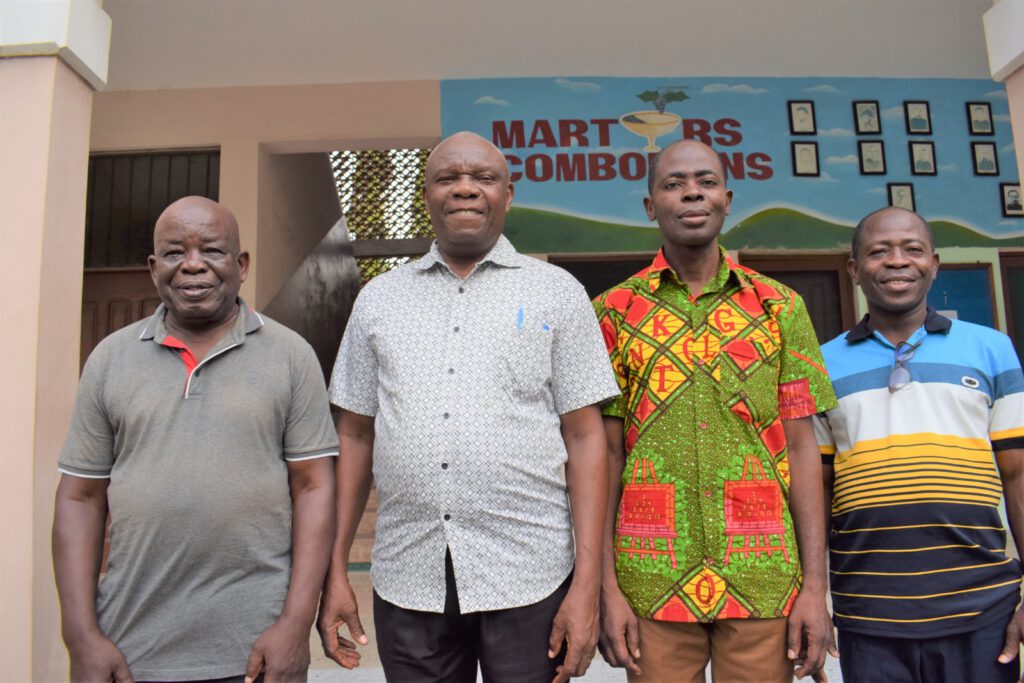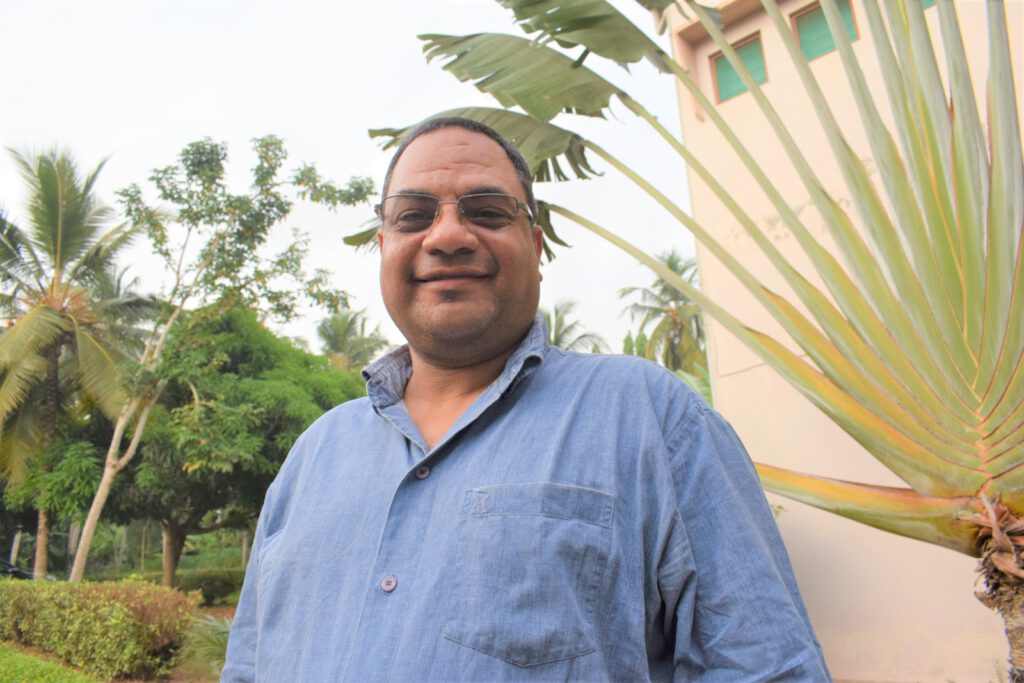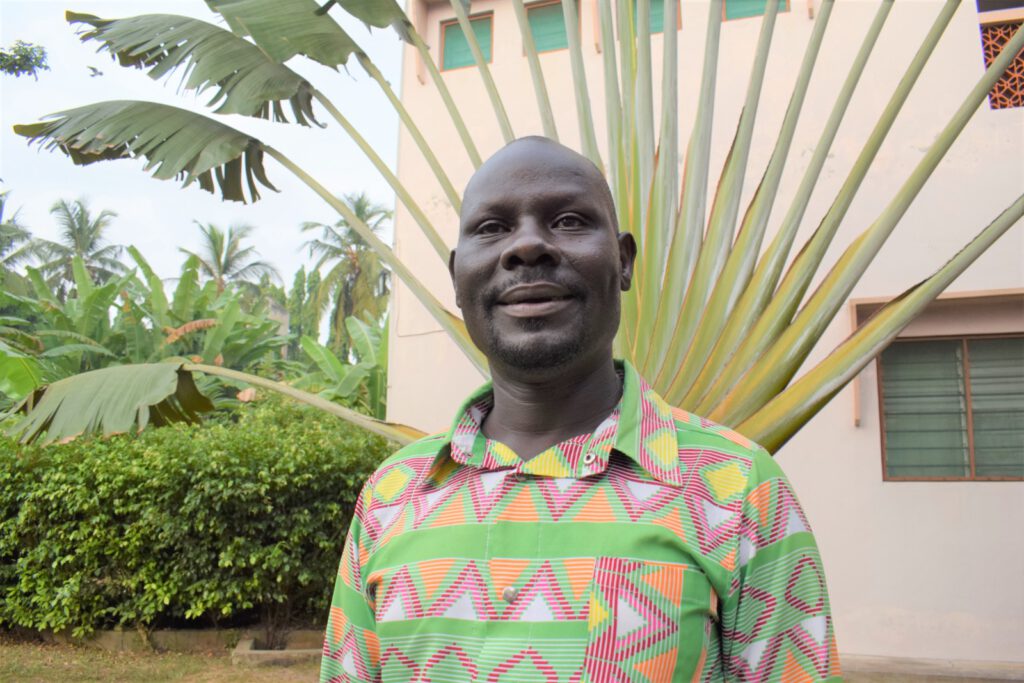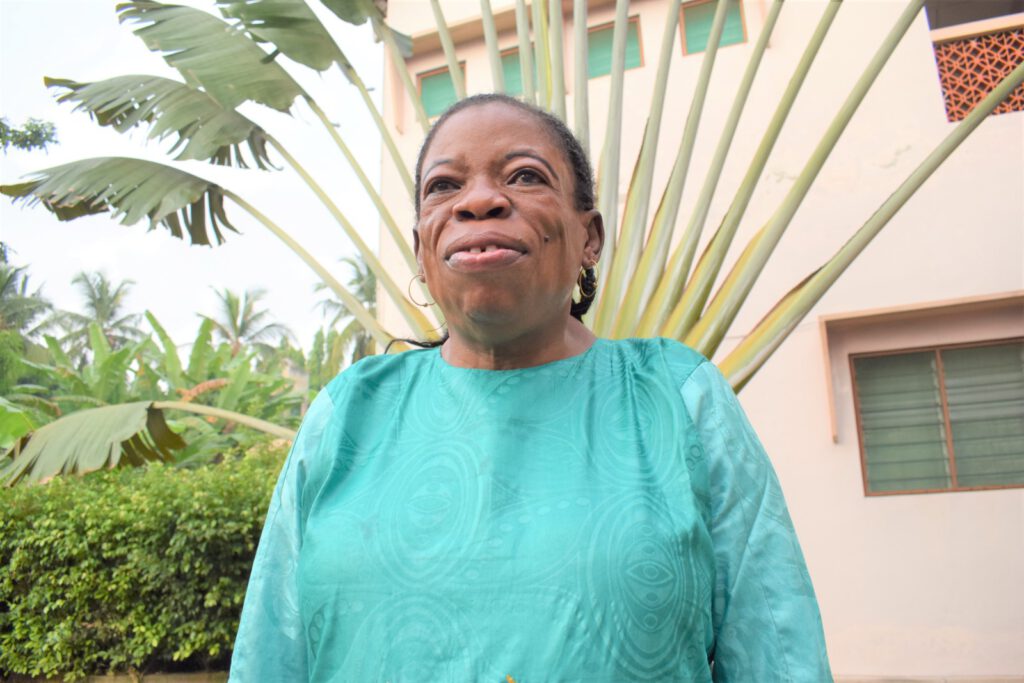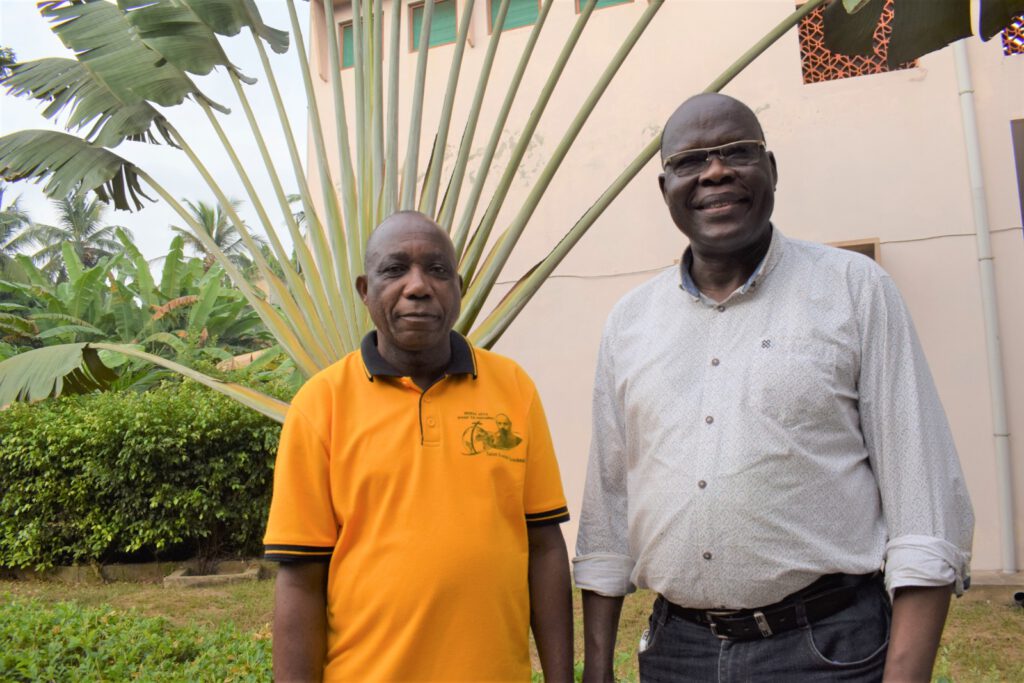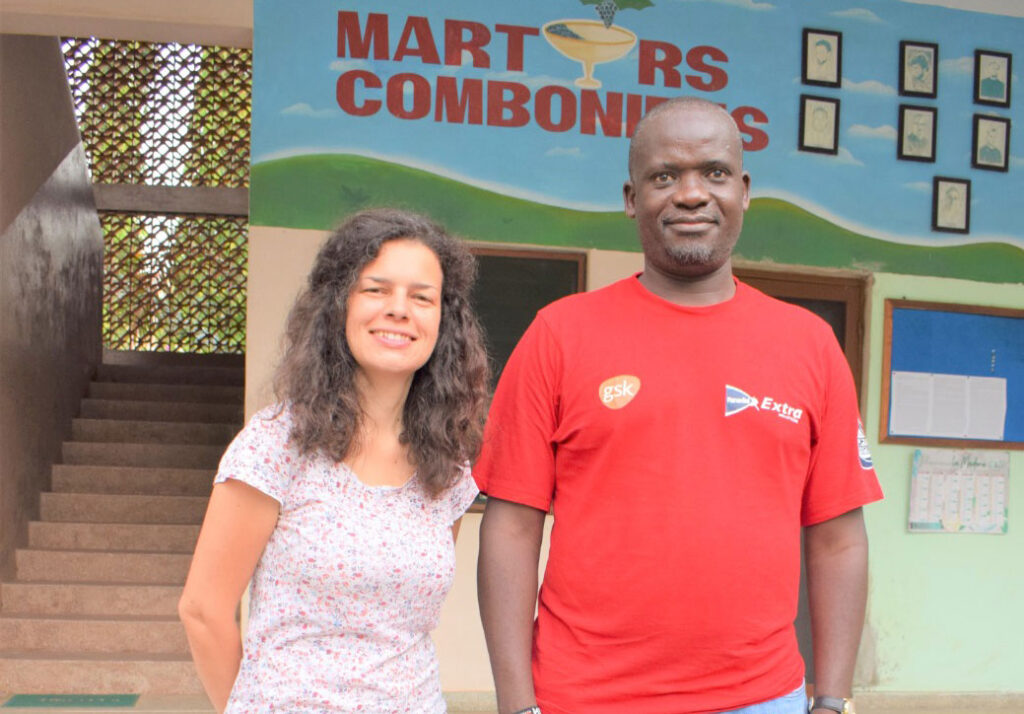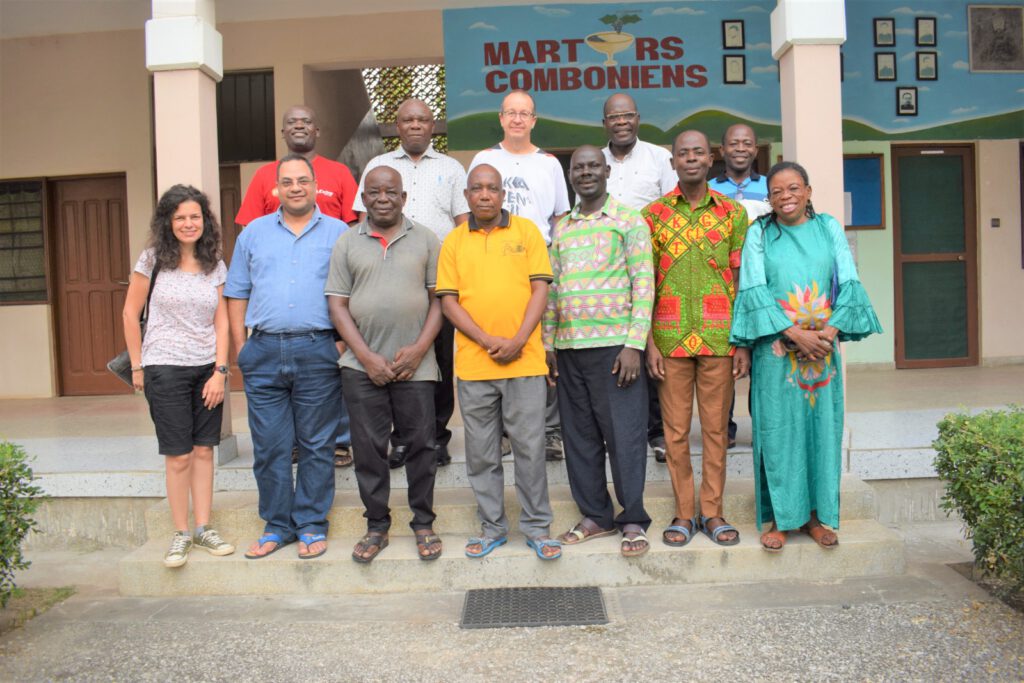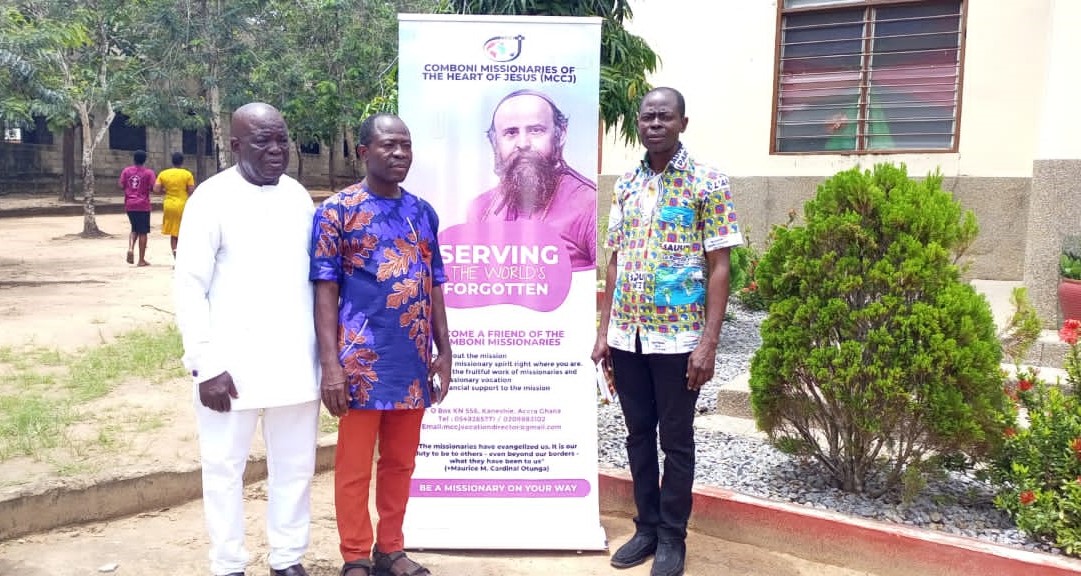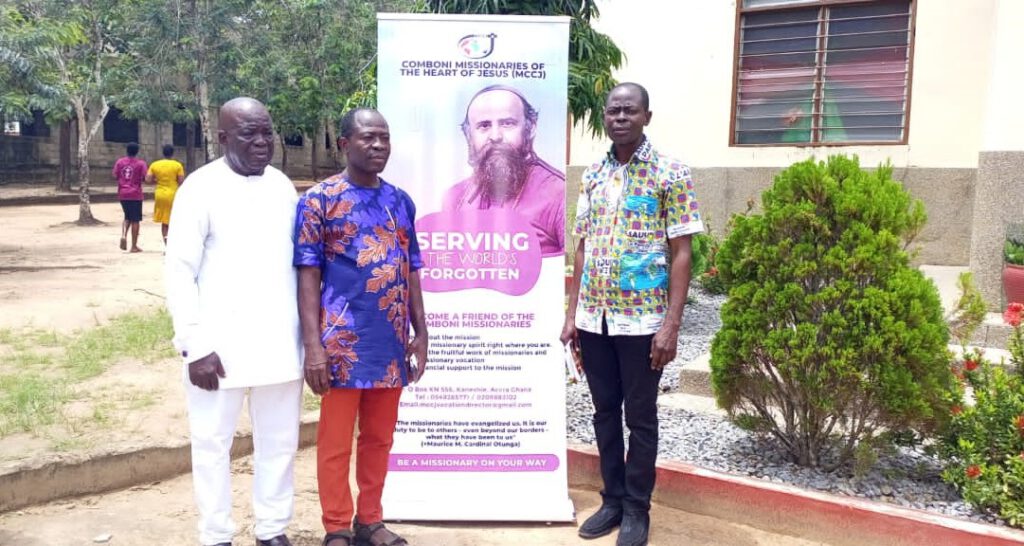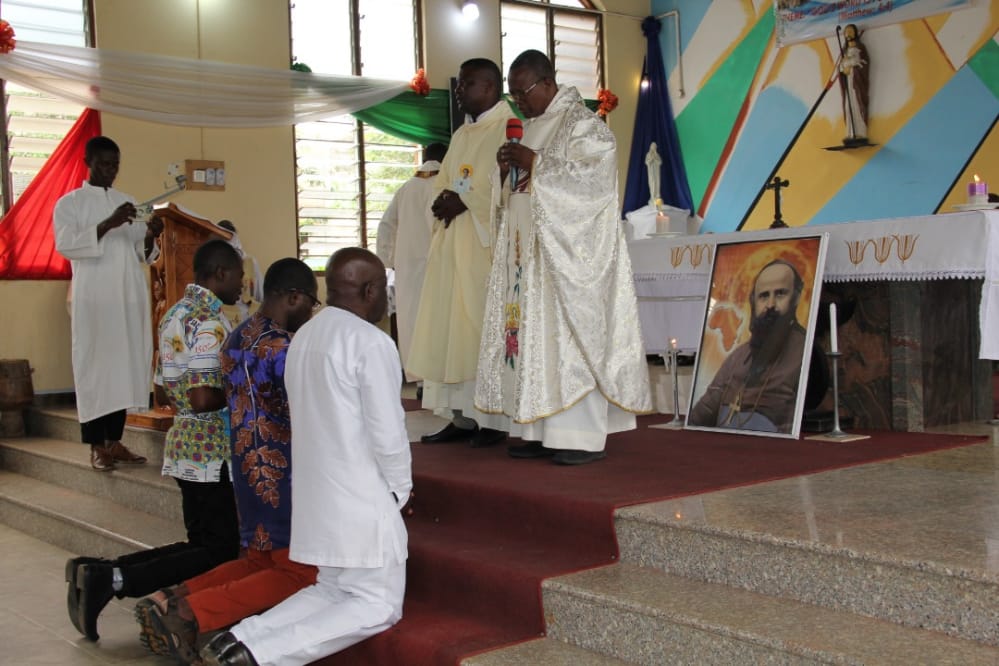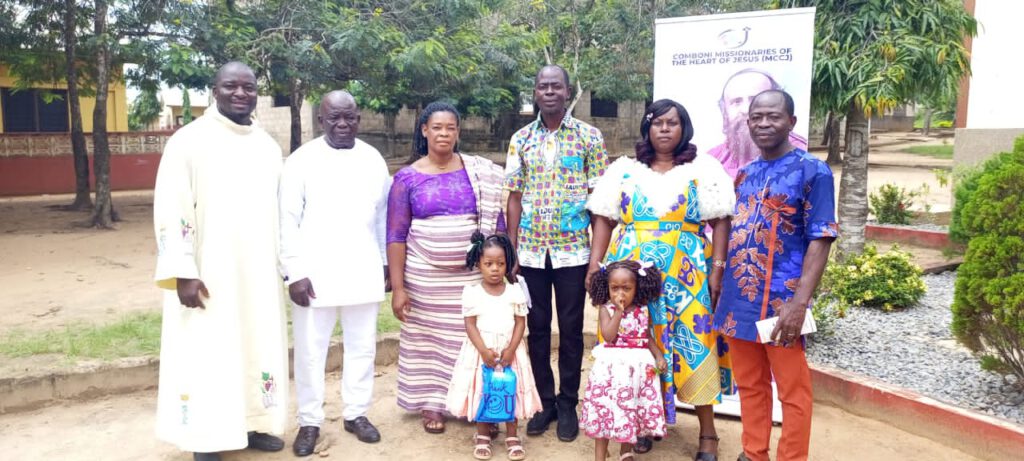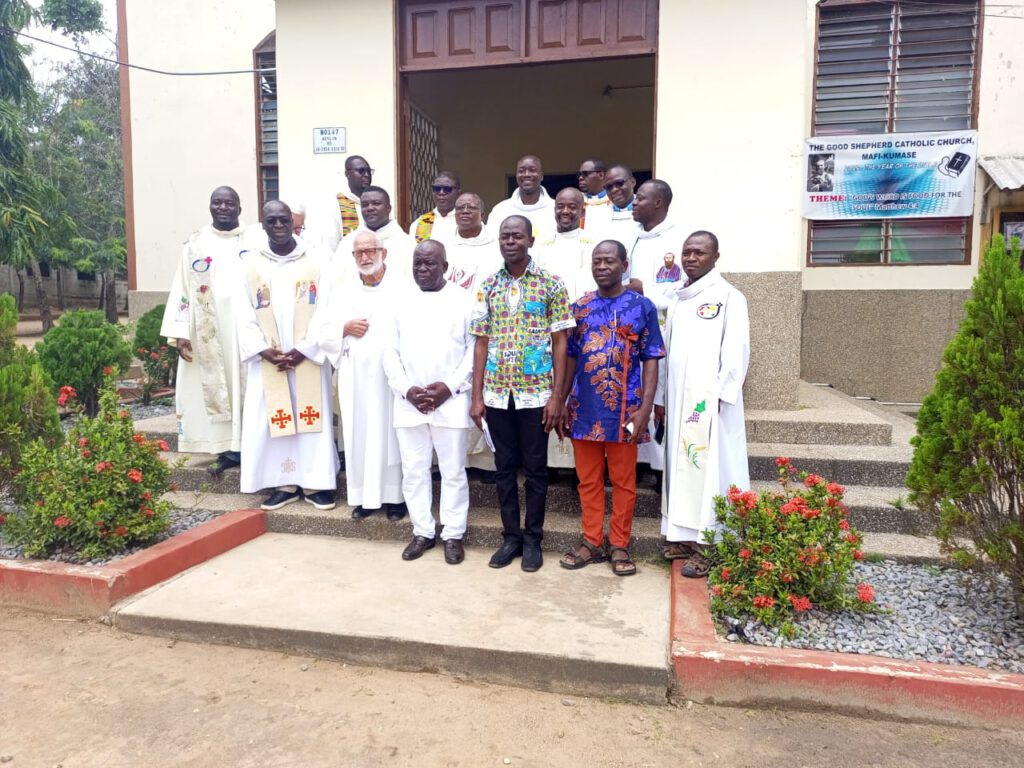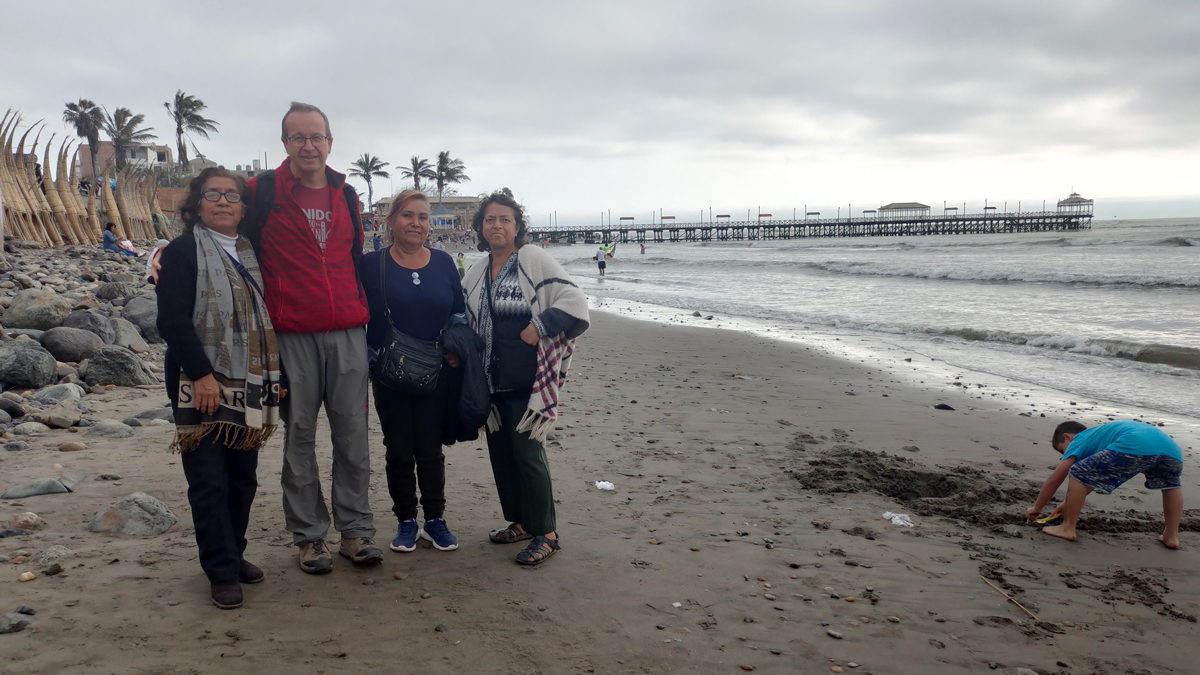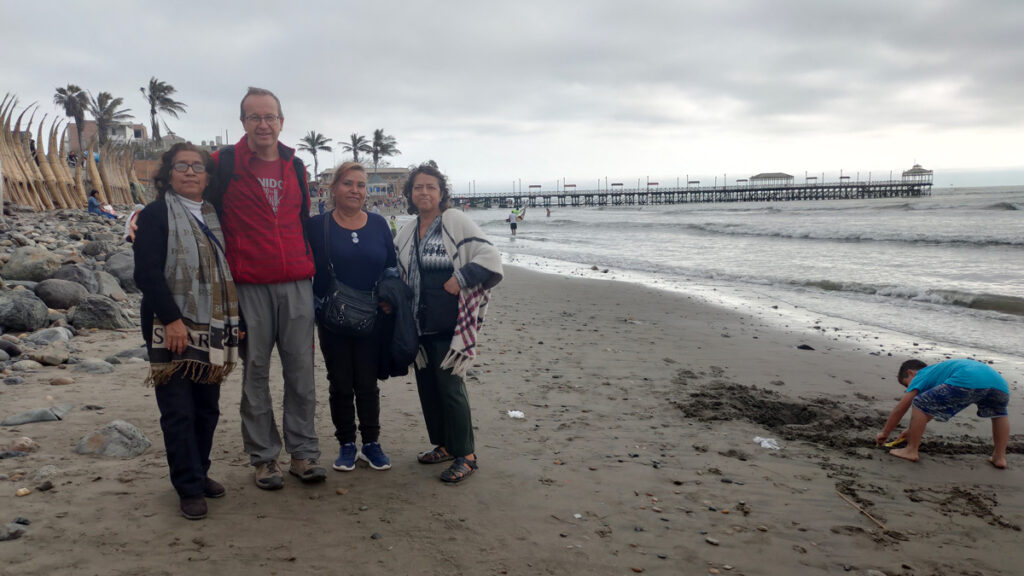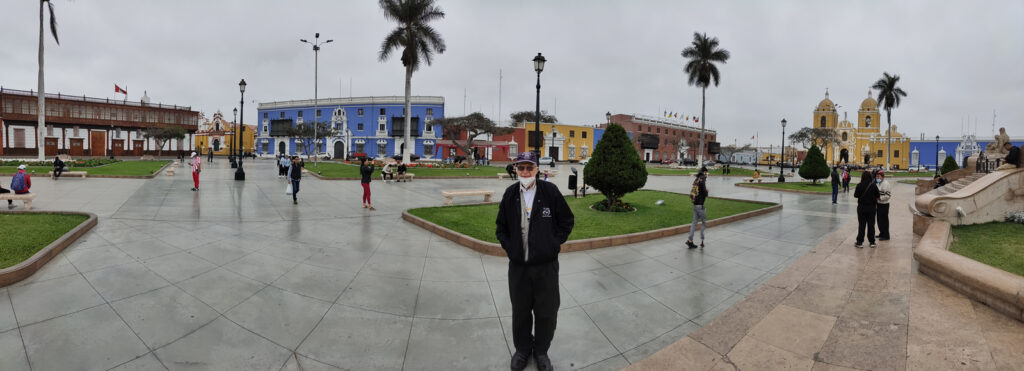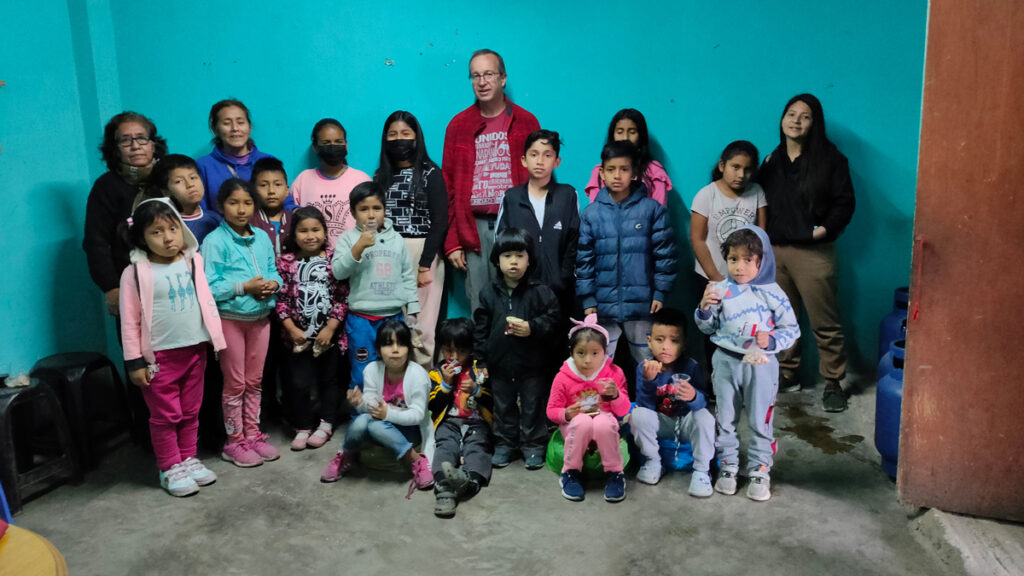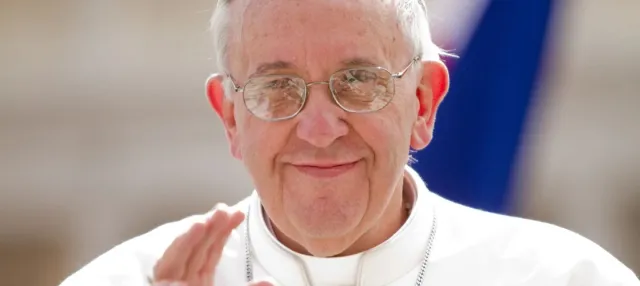“You shall be my witnesses” (Acts 1:8)
Dear brothers and sisters!
These words were spoken by the Risen Jesus to his disciples just before his Ascension into heaven, as we learn from the Acts of the Apostles: “You shall receive power when the Holy Spirit has come upon you; and you shall be my witnesses in Jerusalem and in all Judea and Samaria and to the ends of the earth” (1:8). They are also the theme of the 2022 World Mission Day which, as always, reminds us that the Church is missionary by nature. This year World Mission Day offers us the opportunity to commemorate several important events in the Church’s life and mission: the fourth centenary of the founding of the Congregation de Propaganda Fide, now the Congregation for the Evangelization of Peoples, and the second centenary of the Society of the Propagation of the Faith. A hundred years ago, the latter, together with the Society of the Holy Childhood and the Society of Saint Peter the Apostle, was granted the title “Pontifical”.
Let us reflect on the three key phrases that synthesize the three foundations of the life and mission of every disciple: “You shall be my witnesses”, “to the ends of the earth” and “you shall receive the power of the Holy Spirit”.
1. “You shall be my witnesses” – The call of every Christian to bear witness to Christ
This is the central point, the heart of Jesus’ teaching to the disciples, in view of their being sent forth into the world. The disciples are to be witnesses of Jesus, thanks to the grace of the Holy Spirit that they will receive. Wherever they go and in whatever place they find themselves. Christ was the first to be sent, as a “missionary” of the Father (cf. Jn 20:21), and as such, he is the Father’s “faithful witness” (cf. Rev 1:5). In a similar way, every Christian is called to be a missionary and witness to Christ. And the Church, the community of Christ’s disciples, has no other mission than that of bringing the Gospel to the entire world by bearing witness to Christ. To evangelize is the very identity of the Church.
A deeper look at the words, “You shall be my witnesses”, can clarify a few ever timely aspects of the mission Christ entrusted to the disciples. The plural form of the verb emphasizes the communitarian and ecclesial nature of the disciples’ missionary vocation. Each baptized person is called to mission, in the Church and by the mandate of the Church: consequently, mission is carried out together, not individually, in communion with the ecclesial community, and not on one’s own initiative. Even in cases where an individual in some very particular situation carries out the evangelizing mission alone, he must always do so in communion with the Church which commissioned him. As Saint Paul VI taught in the Apostolic Exhortation Evangelii Nuntiandi, a document dear to my heart: “Evangelization is for no one an individual and isolated act; it is one that is deeply ecclesial. When the most obscure preacher, catechist or pastor in the most distant land preaches the Gospel, gathers his little community together or administers a sacrament, even alone, he is carrying out an ecclesial act, and his action is certainly attached to the evangelizing activity of the whole Church by institutional relationships, but also by profound invisible links in the order of grace. This presupposes that he acts not in virtue of a mission which he attributes to himself or by a personal inspiration, but in union with the mission of the Church and in her name” (No. 60). Indeed, it was no coincidence that the Lord Jesus sent his disciples out on mission in pairs; the witness of Christians to Christ is primarily communitarian in nature. Hence, in carrying out the mission, the presence of a community, regardless of its size, is of fundamental importance.
In addition, the disciples are urged to live their personal lives in a missionary key: they are sent by Jesus to the world not only to carry out, but also and above all to live the mission entrusted to them; not only to bear witness, but also and above all to be witnesses of Christ. In the moving words of the Apostle Paul, “[we are] always carrying in the body the death of Jesus, so that the life of Jesus may also be manifested in our bodies” (2 Cor 4:10). The essence of the mission is to bear witness to Christ, that is, to his life, passion, death and resurrection for the love of the Father and of humanity. Not by chance did the apostles look for Judas’ replacement among those who, like themselves, had been witnesses of the Lord’s resurrection (cf. Acts 1:21). Christ, indeed Christ risen from the dead, is the One to whom we must testify and whose life we must share. Missionaries of Christ are not sent to communicate themselves, to exhibit their persuasive qualities and abilities or their managerial skills. Instead, theirs is the supreme honour of presenting Christ in words and deeds, proclaiming to everyone the Good News of his salvation, as the first apostles did, with joy and boldness.
In the final analysis, then, the true witness is the “martyr”, the one who gives his or her life for Christ, reciprocating the gift that he has made to us of himself. “The primary reason for evangelizing is the love of Jesus which we have received, the experience of salvation which urges us to ever greater love of him” (Evangelii Gaudium, 264).
Finally, when it comes to Christian witness, the observation of Saint Paul VI remains ever valid: “Modern man listens more willingly to witnesses than to teachers, and if he does listen to teachers, it is because they are witnesses” (Evangelii Nuntiandi, 41). For this reason, the testimony of an authentic Christian life is fundamental for the transmission of the faith. On the other hand, the task of proclaiming Christ’s person and the message is equally necessary. Indeed, Paul VI went on to say: “Preaching, the verbal proclamation of a message, is indeed always indispensable… The word remains ever relevant, especially when it is the bearer of the power of God. This is why Saint Paul’s axiom, “Faith comes from what is heard” (Rom 10:17), also retains its relevance: it is the word that is heard which leads to belief” (ibid., 42).
In evangelization, then, the example of a Christian life and the proclamation of Christ are inseparable. One is at the service of the other. They are the two lungs with which any community must breathe, if it is to be missionary. This kind of complete, consistent and joyful witness to Christ will surely be a force of attraction also for the growth of the Church in the third millennium. I exhort everyone to take up once again the courage, frankness and parrhesía of the first Christians, in order to bear witness to Christ in word and deed in every area of life.
2. “To the ends of the earth” – The perennial relevance of a mission of universal evangelization
In telling the disciples to be his witnesses, the risen Lord also tells them where they are being sent: “…in Jerusalem and in all Judea and Samaria and to the ends of the earth” (Acts 1:8). Here we clearly see the universal character of the disciples’ mission. We also see the “centrifugal” geographical expansion, as if in concentric circles, of the mission, beginning with Jerusalem, which Jewish tradition considered the centre of the world, to Judea and Samaria and to “the ends of the earth”. The disciples are sent not to proselytize, but to proclaim; the Christian does not proselytize. The Acts of the Apostles speak of this missionary expansion and provide a striking image of the Church “going forth” in fidelity to her call to bear witness to Christ the Lord and guided by divine providence in the concrete conditions of her life. Persecuted in Jerusalem and then spread throughout Judea and Samaria, the first Christians bore witness to Jesus everywhere (cf. Acts 8:1, 4).
Something similar still happens in our own day. Due to religious persecution and situations of war and violence, many Christians are forced to flee from their homelands to other countries. We are grateful to these brothers and sisters who do not remain locked in their own suffering but bear witness to Christ and to the love of God in the countries that accept them. Hence, Saint Paul VI encouraged them to recognize the “responsibility incumbent on immigrants in the country that receives them” (Evangelii Nuntiandi, 21). More and more, we are seeing how the presence of faithful of various nationalities enriches the face of parishes and makes them more universal, more Catholic. Consequently, the pastoral care of migrants should be valued as an important missionary activity that can also help the local faithful to rediscover the joy of the Christian faith they have received.
The words “to the ends of the earth” should challenge the disciples of Jesus in every age and impel them to press beyond familiar places in bearing witness to him. For all the benefits of modern travel, there are still geographical areas in which missionary witnesses of Christ have not arrived to bring the Good News of his love. Then too no human reality is foreign to the concern of the disciples of Jesus in their mission. Christ’s Church will continue to “go forth” towards new geographical, social and existential horizons, towards “borderline” places and human situations, in order to bear witness to Christ and his love to men and women of every people, culture and social status. In this sense, the mission will always be a missio ad gentes, as the Second Vatican Council taught. The Church must constantly keep pressing forward, beyond her own confines, in order to testify to all the love of Christ. Here I would like to remember and express my gratitude for all those many missionaries who gave their lives in order to “press on” in incarnating Christ’s love towards all the brothers and sisters whom they met.
3. “You will receive power” from the Holy Spirit – Let us always be strengthened and guided by the Spirit.
When the risen Christ commissioned the disciples to be his witnesses, he also promised them the grace needed for this great responsibility: “You shall receive power when the Holy Spirit has come upon you; and you shall be my witnesses” (Acts 1:8). According to the account in Acts, it was precisely following the descent of the Holy Spirit on the disciples that the first act of witnessing to the crucified and risen Christ took place. That kerygmatic proclamation – Saint Peter’s “missionary” address to the inhabitants of Jerusalem – inaugurated an era in which the disciples of Jesus evangelized the world. Whereas they had previously been weak, fearful and closed in on themselves, the Holy Spirit gave them the strength, courage and wisdom to bear witness to Christ before all.
Just as “no one can say ‘Jesus is Lord’, except by the Holy Spirit” (1 Cor 12:3), so no Christian is able to bear full and genuine witness to Christ the Lord without the Spirit’s inspiration and assistance. All Christ’s missionary disciples are called to recognize the essential importance of the Spirit’s work, to dwell in his presence daily and to receive his unfailing strength and guidance. Indeed, it is precisely when we feel tired, unmotivated or confused that we should remember to have recourse to the Holy Spirit in prayer. Let me emphasize once again that prayer plays a fundamental role in the missionary life, for it allows us to be refreshed and strengthened by the Spirit as the inexhaustible divine source of renewed energy and joy in sharing Christ’s life with others. “Receiving the joy of the Spirit is a grace. Moreover, it is the only force that enables us to preach the Gospel and to confess our faith in the Lord” (Message to the Pontifical Mission Societies, 21 May 2020). The Spirit, then, is the true protagonist of mission. It is he who gives us the right word, at the right time, and in the right way.
In light of this action of the Holy Spirit, we also want to consider the missionary anniversaries to be celebrated in 2022. The establishment of the Sacred Congregation De Propaganda Fide in 1622 was motivated by the desire to promote the missionary mandate in new territories. A providential insight! The Congregation proved to be crucial for setting the Church’s evangelizing mission truly free from interference by worldly powers, in order to establish those local Churches which today display such great vigour. It is our hope that, as in its past four centuries, the Congregation, with the light and strength of the Spirit, will continue and intensify its work of coordinating, organizing and promoting the Church’s missionary activities.
The same Spirit who guides the universal Church also inspires ordinary men and women for extraordinary missions. Thus it was that a young French woman, Pauline Jaricot, founded the Society for the Propagation of the Faith exactly two hundred years ago. Her beatification will be celebrated in this jubilee year. Albeit in poor health, she accepted God’s inspiration to establish a network of prayer and collection for missionaries, so that the faithful could actively participate in the mission “to the ends of the earth”. This brilliant idea gave rise to the annual celebration of World Mission Day, in which the funds collected in local communities are applied to the universal fund with which the Pope supports missionary activity.
In this regard, I think too of the French Bishop Charles de Forbin-Janson, who established the Association of the Holy Childhood to promote the mission among children, with the motto “Children evangelize children, children pray for children, children help children the world over”. I also think of Jeanne Bigard, who inaugurated the Society of Saint Peter the Apostle for the support of seminarians and priests in mission lands. Those three Mission Societies were recognized as “Pontifical” exactly a hundred years ago. It was also under the inspiration and guidance of the Holy Spirit that Blessed Paolo Manna, born 150 years ago, founded the present-day Pontifical Missionary Union, to raise awareness and encourage missionary spirit among priests, men and women religious and the whole people of God. Saint Paul VI himself was part of this latter Society, and confirmed its papal recognition. I mention these four Pontifical Mission Societies for their great historical merits, but also to encourage you to rejoice with them, in this special year, for the activities they carry out in support of the mission of evangelization in the Church, both universal and local. It is my hope that the local Churches will find in these Societies a sure means for fostering the missionary spirit among the People of God.
Dear brothers and sisters, I continue to dream of a completely missionary Church, and a new era of missionary activity among Christian communities. I repeat Moses’ great desire for the people of God on their journey: “Would that all the Lord’s people were prophets!” (Num 11:29). Indeed, would that all of us in the Church were what we already are by virtue of baptism: prophets, witnesses, missionaries of the Lord, by the power of the Holy Spirit, to the ends of the earth! Mary, Queen of the Missions, pray for us!
Rome, Saint John Lateran, 6 January 2022, Solemnity of the Epiphany of the Lord
FRANCIS
